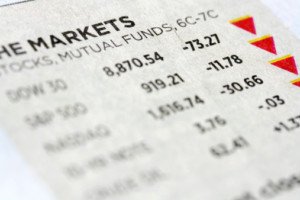Avoid These Three Mutual Fund Mistakes
 With the possibility of a trade war resolution, investors who have been keeping cash on the side lines may start jumping into the market. With over 10,000 mutual funds available, many investors still use this vehicle as their primary investment tool. You’ll keep more after-tax income if you avoid these three mistakes.
With the possibility of a trade war resolution, investors who have been keeping cash on the side lines may start jumping into the market. With over 10,000 mutual funds available, many investors still use this vehicle as their primary investment tool. You’ll keep more after-tax income if you avoid these three mistakes.
1. Judge a fund on fees—not performance
Many investors follow the herd mentality. They choose mutual funds based on past performance. According to Morningstar, choosing funds based their past performance is an unreliable indicator of future performance.
At the same time, mutual funds can be costly. Fees can stack up quickly and take a significant bite out of your returns. Even “no-load” funds, which might be free of initial sales or transaction charges, can charge numerous management and other fees that weren’t obvious.
Top performers one year are not the same winners the following year. This is why over time, a low fee fund which owns an entire category of investments often results in higher returns.
2. Buying Funds with Embedded Capital Gains
Suppose you buy a mutual fund in October. In November that mutual fund sells a stock, it has owned for ten years. Because mutual funds are required net gains to current shareholders, you may receive a pro-rata portion of that gain. So now you are paying taxes on a gain that occurred within a fund that you have owned for only a short time. As a matter of fact, if the market has gone down, your shares may be worth less than what you paid for them, yet you will still be responsible for paying taxes on a portion of this capital gain.
3. Buying Funds with Similar Strategies
Many people own eight to ten different mutual funds and think they are diversified, but when you look inside the mutual funds, all the funds own the same type of stock or the same type of bond. It would be like taking an x-ray of three different people and finding that we all had two arms, two legs, and a rib cage.
A well-diversified portfolio gives you exposure to large-cap stocks, small-cap stocks, international large-cap stocks, international small-cap stocks, real estate stocks, emerging markets, and various types of bonds.
Before you buy shares of a mutual fund, look at the ingredients. Does the fund own something different than other funds you own? If so, maybe it will be a good addition to your portfolio.
If you’re not sure what the fund owns or have concerns about performance, you may want to seek professional guidance.
[/fusion_text][/fusion_builder_column][/fusion_builder_row][/fusion_builder_container]






